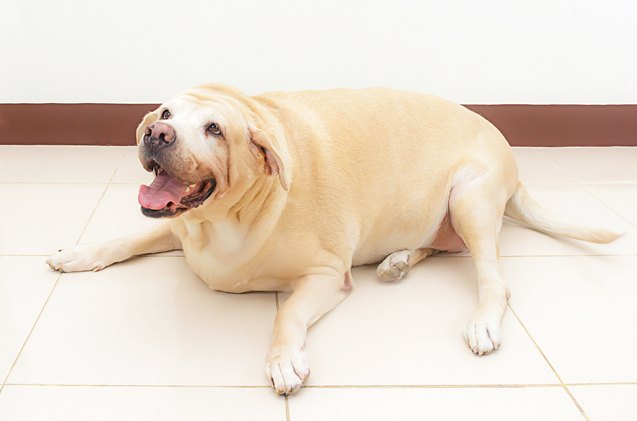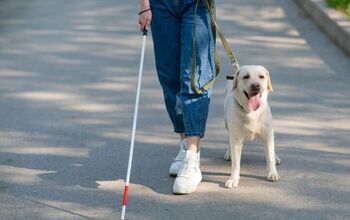Study: Pet Obesity on the Rise for 6th Straight Year

I confess that for the umpteenth year in a row my new year’s resolutions include getting into shape and losing weight. This annual pledge of mine has become as routine as popping corks and sipping champagne on the eve of a new year… and unfortunately lasts about as long as the fizz in said bottle of bubbly.
Why is it that while I can identify the need to resurrect this goal for myself year after year, I seem oblivious to the growing heft of my feline gal pal, FiFi. Yes, my little girl stopped being “little” a couple years back and while I would never shame her by putting her on a scale, my guesstimate would be that she lands in the 22-25 pound range. Certain angles are rather unsettling – think harp seal on a beach – and while I was initially pleased to see this rescue had started eating and “settled in so well” I’m noticing a certain lethargy and obsession with food that suggests my furry feline friend needs a new year’s resolution of her own.
Related: Weighty Facts About Feline Obesity
I’m not alone in this regard as data accumulated from the country’s largest provider of pet health insurance shows that pet obesity has risen for the sixth straight year. Nationwide confirms that over 1.3 million insurance claims were filed for conditions and diseases related directly to overweight pets in 2015. That’s over $60 million in vet fees specific to weight-related ailments – a whopping 23% increase during the past three years.
While you might assume your pooch or feline would simply become a little more lethargic due to the excess poundage, that’s just the tip of the iceberg. Here are the top 10 health issues your paunchy pet can be subject to as determined by Nationwide’s database of more than 585,000 members:
Most Common Dog Ailments
- Arthritis
- Bladder/Urinary Tract Disease
- Low Thyroid Hormone Production
- Liver Disease
- Torn Knee Ligaments
- Diabetes
- Diseased Disc in the Spine
- Chronic Kidney Disease
- Heart Failure
- Fatty Growth
Most Common Cat Ailments
- Bladder/Urinary Tract Disease
- Chronic Kidney Disease
- Diabetes
- Asthma
- Liver Disease
- Arthritis
- High Blood Pressure
- Heart Failure
- Gall Bladder Disorder
- Immobility of Spine
The most common claim for dogs was arthritis which represented 49,000 of the 2015 claims and for cats it was bladder and urinary tract infections that led to obesity related vet visits.
Related: What A Treat: Choosing the Best Dog Treats
If you’re already thinking your pet could lose a couple pounds, here are some tips to help ensure “lose weight:” doesn’t make his list of resolutions next year:
- Avoid feeding your pet table scraps. When pets get a taste for human food, kibble just doesn’t cut it!
- Keep a consistent diet by monitoring the amount of food you give your pet. For multi-pet households, consider a specific feeding time versus free-ranging so you can supervise who is eating what.
- Consider purchasing food specific to your pet. “Indoor”, “Senior” or “Weight Loss” options exist and will be less expensive than a trip to the vet.
- Regulate the amount of treats you give your pet. Our dogs love mini raw carrots. Cheap, healthy, crunchy and just the right size.
- Establish a healthy and fun exercise schedule. Walks, fetch, off-leash runs, chase the cat… all help burn those calories.

Sharing space with three seriously judgy Schnoodles and a feline who prefers to be left alone. #LivingMyBestLife
More by Mary Simpson























